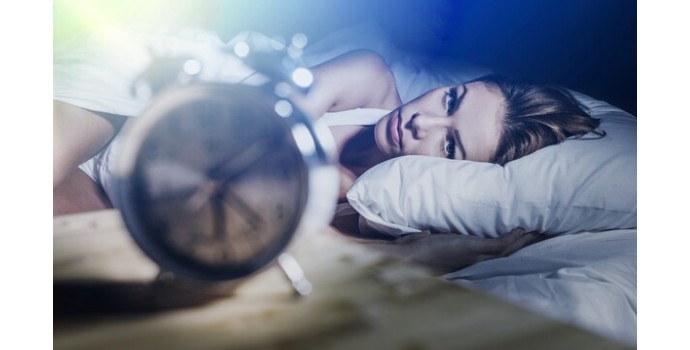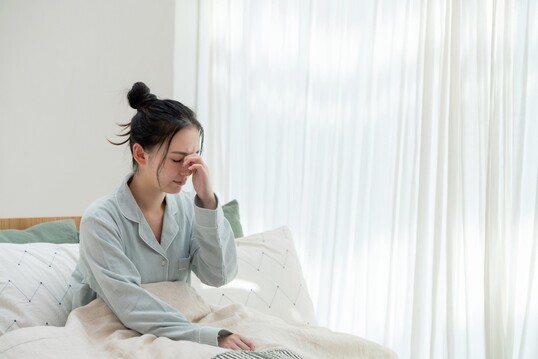Anxiety and insomnia: can lack of sleep cause anxiety?

Anxiety insomnia: can lack of sleep cause anxiety?
The relationship that exists between anxiety and insomnia inevitably leads back to the age-old and unsolvable question: was the chicken or the egg born first?
While it is universally known that anxious or stressed people suffer more from sleep deprivation than the rest of the population, a significant number of clinical studies show that difficulty sleeping can lead to anxiety disorders, even in people who usually do not. suffer.
In any case, anxiety, stress and sleep are closely linked to each other.
The attempt to fix an optimal value for the duration of sleep is systematically discouraged by a trivial consideration: what may be valid for one individual does not always apply to others. 5-6 hours of sleep may be enough for some, and 10 hours just enough for others. It is therefore almost useless to define the quality of sleep based solely on its duration. However, we can say that when sleep is regularly disturbed or interrupted that we can speak of sleep disturbances, or insomnia.
As such, anxious people are more prone to nocturnal disturbances than others. But how does anxiety (or stress) affect sleep?
How does anxiety affect sleep?
Our autonomic nervous system is divided into two components: the parasympathetic system, which is responsible for states of calm and sleep, and the sympathetic system, which comes into operation in active life and in the response to stress. Anxiety, by its nature, leads to fear, stress and recurring thoughts that activate the sympathetic system and sometimes lead to a stage of over-arousal during sleep. The effect could be comparable to that of a nice cup of coffee: you experience a significant delay in falling asleep with a decrease in deep sleep, an increase in light sleep and a significant variation in the REM phase. In younger anxious people, the heart rate is higher at night; this translates into a more disturbed sleep, interspersed with more or less short and more or less frequent awakening phases.

Lack of sleep can also create anxiety.
But the opposite is also true: lack of sleep can create anxiety, in fact. In a 2020 study, a team of American neuroscience and psychology professors identified a new function of deep sleep. It would in fact be able to reorganize some brain connections, and reduce anxiety and stress.
By subjecting the participants to watching disturbing videos after a good night's sleep, and repeating the experience after a sleepless night, it was seen that the brain area responsible for controlling anxiety (the median prefrontal cortex) was partially disconnected after a poor night's sleep. And that, at the same time, there is an over-activation of the emotional centers.
In practice, it is as if the brain, in the absence of rest, presses harder on the emotional accelerator, without enough brakes.
How to fight anxiety and insomnia
The management of stress and anxiety are essential, therefore, to sleep well at night and, on the other hand, the daily lifestyle can decisively determine the extent of these emotional states. In addition to eating a balanced diet and exercising throughout the week, you can relieve stress through controlled breathing and other relaxation techniques. A healthy work-life balance is also important, as is the ability to "release" stress productively during situations that require it and not at other times.
Ultimately, although a significant increase in anxiety disorders has been observed for a decade or more, this goes hand in hand with a marked decrease in sleep, particularly in countries.
Variety of programs and videos accessible at any time, extended working hours thanks to teleworking, reconciliation between work and family, social networks and mobile phones… there are many reasons to explain this phenomenon. Anxiety and insomnia are therefore intimately linked and it is important to find ways to improve sleep to reduce anxiety. It is actually a vicious circle in which anxiety and / or stress create insomnia which in turn exacerbates anxiety disorders. It is therefore important to be aware of this in order to be able to break this cycle.
A good way to find your well-being is to rely on the progress of nutraceuticals thanks to special supplements for anxiety and sleep. One of these is Quietil, a completely natural product based on Valerian, Melatonin, Folic Acid, L-Theanine and Magnesium. The synergistic effect of these ingredients improves the quality of sleep and promotes physical and mental relaxation, with great benefits for mood.
Find your correct sleep-wake balance. Click here to buy Quietil!
